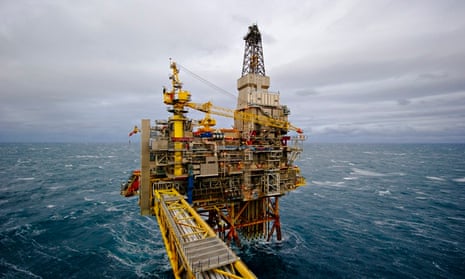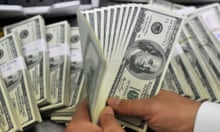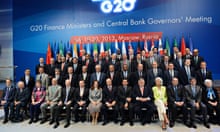The world’s biggest companies disclose little or no financial details about their operations outside their home countries, watchdog Transparency International (TI) said in a report that ranks 124 firms and found that UK businesses were among the best performers, while Chinese companies and several US technology giants were among the worst.
The watchdog warned that the biggest oil, gas and mining companies were not ready for the kind of transparency rules that will come into force across the EU from July. The regulations require extractive companies to report payments such as taxes to governments on a country-by-country and project-by-project basis.
The companies, with a combined market value of more than $14tn, were assigned rankings based on their reporting of measures taken to prevent corruption, information about subsidiaries and holdings, and key financial information about overseas operations. The top three were Italian energy group Eni, Britain’s Vodafone and Norway’s Statoil. The bottom three were China’s Bank of Communications, Japanese carmarker Honda and Bank of China.
Ninety of the 124 companies, drawn from the Forbes list of the world’s biggest publicly traded companies, do not disclose the taxes they pay in foreign countries, while 54 disclose no information on their revenues in other countries, TI said.
The report’s authors drew attention to the poor score for several technology giants, including Amazon and Google.
“Surprisingly, the sector that makes greater transparency possible is one of the least transparent. US tech giants Amazon, Apple, Google and IBM all score less than three out of 10,” TI said. “Amazon, Apple and Google are among seven US companies whose company leadership doesn’t publicly demonstrate support for anti-corruption on their website.
“Neither Amazon nor Apple say whether they have anti-corruption training for staff. Amazon is the only US company that is silent on its policy on gifts, hospitality and expenses, as well as on the channels it provides for whistleblowers.”
However, TI said all 44 US companies assessed enabled staff to report corruption.
“Tech companies are driving changes that are making our societies more open and accountable. They should be setting an example for other companies on transparency. We hope they will live up to the promise of their products and be more transparent about the way they operate,” said Cobus de Swardt, TI’s managing director.
Another American firm, Warren Buffet’s Berkshire Hathaway conglomerate, also performed badly, languishing sixth from bottom in the rankings.
This article includes content provided by Google. We ask for your permission before anything is loaded, as they may be using cookies and other technologies. To view this content, click 'Allow and continue'.
Only one company, Vodafone, scored more than 50% in all three categories. Seven of the top 10 companies were from Europe, while eight of the bottom 10 were from Asia, including China Construction Bank and offshore oil and gas explorer CNOOC.
Four companies – global mining giant BHP Billiton, Eni, Statoil and Vodafone – scored more than six out of 10. The four companies report on a range of corruption prevention measures and disclose details of subsidiaries. However, only three companies – Statoil, Spain’s Telefónica and Vodafone – score above 50% for country-by-country reporting, disclosing tax payments in almost all the countries where they operate, though not all financial data.
“We need more transparency from multinational companies, whose power in the world economy closely rivals the biggest countries,” said TI’s chairman José Ugaz.
“With greater economic power comes greater responsibility. Bad corporate behaviour creates the corruption that causes poverty and instability. By not responding to people’s demands for greater transparency and accountability, companies risk harming their brand and losing customers.”
Next year, extractive companies will be required to meet EU rules on payments, similar to those included in the 2010 Dodd-Frank Act in the US. Implementation of the act has been delayed by an oil lobby lawsuit. The respective laws will apply to large companies registered in the EU, and to companies listed on EU or US stock exchanges.
Of the 24 extractive companies in the report that would fall under the new rules, 19 disclose tax payments and revenue in less than half the countries where they operate. Only BHP Billiton, Statoil and Indian firms ONGC and Reliance disclose tax payments in almost all the foreign countries where they operate.
“Companies have to provide more information on their financial operations. Transparency allows citizens to find out the extent of a company’s operations in their country. It is also essential to follow money flows between governments and companies, which can be subject to corruption,” said Ugaz.
TI said all 13 UK companies assessed performed strongly on anti-corruption measures by publicly committing to comply with anti-corruption laws and instituting whistleblowing measures. The report noted that a 2011 law prohibiting bribery encouraged many firms to tighten their procedures.
All eight Chinese companies scored less than three out of 10, and the report’s authors said the leadership in six of the eight companies did not publicly support measures against corruption, none explicitly banned the payment of small bribes to gain favours, and none disclosed financial data in any of the 59 companies where they operate.
This article includes content provided by Google. We ask for your permission before anything is loaded, as they may be using cookies and other technologies. To view this content, click 'Allow and continue'.








Comments (…)
Sign in or create your Guardian account to join the discussion